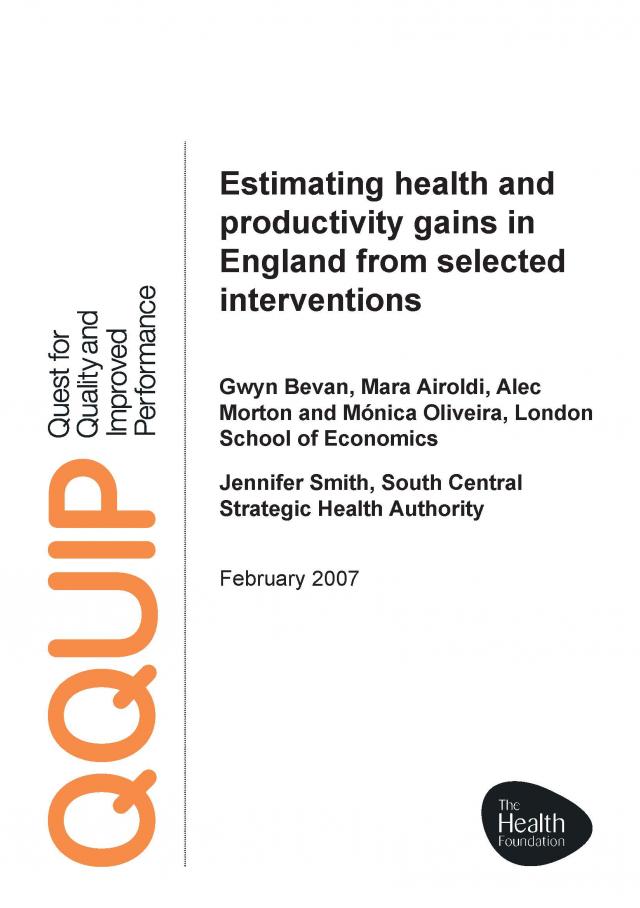Estimating health and productivity gains in England from selected interventions
April 2007
About 1 mins to read

Key points
- Conducting this research has revealed three issues that need to be taken into account when examining the impact of health policies.
- Estimating impacts of interventions on the new measures of NHS productivity reveals inadequacies in the data that are routinely collected and in the evidence that is reported. These difficulties do not invalidate the principal findings of this research but they do point to the kinds of improvements that are required for better estimates to be made.
- Assessing interventions in terms of their impacts on NHS productivity will tend to prioritise interventions for common diseases where prevalence is high and there are significant benefits from treatment (as is the case for statins). However, there are often other reasons than productivity for investing in a disease area, and this should not be the only criterion used.
- The two ways of giving monetary values of benefits of policies in measuring gains in NHS productivity – the value of a statistical life and QALYs – can lead to very different results.
Researchers from The Health Foundation’s Quest for Quality and Improved Performance (QQUIP) have developed an approach for analysing the relative scale of benefits of health policies to help assess where money might be spent to greatest effect.
Work with us
We look for talented and passionate individuals as everyone at the Health Foundation has an important role to play.
View current vacanciesThe Q community
Q is an initiative connecting people with improvement expertise across the UK.
Find out more

